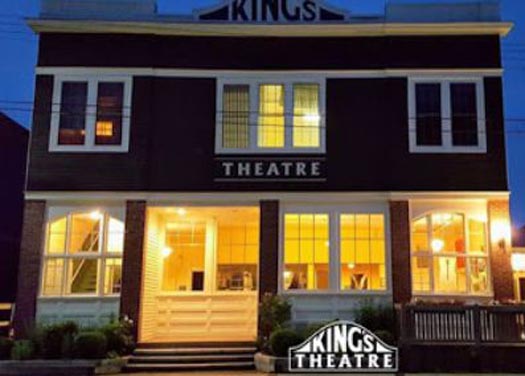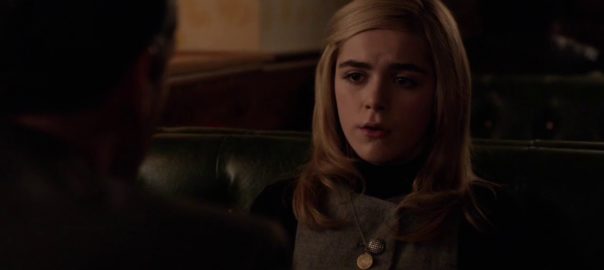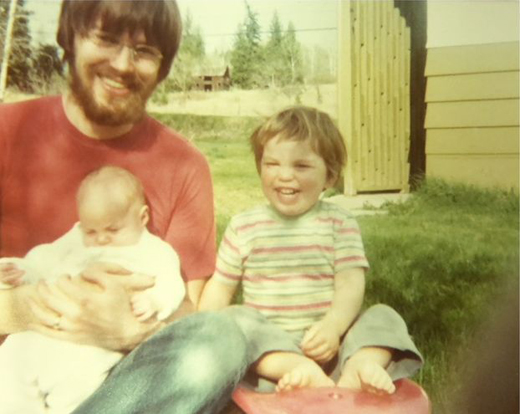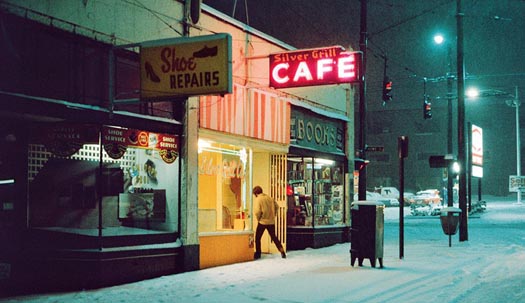
The future of journalism will increasingly depend on you paying for the news directly. Subscribing to newspapers, magazines and online journals represents nothing less than your essential duty to your fellow citizens, a necessary act of good citizenship, particularly when the algorithms developed by social media feeds like Facebook knowingly publish what can only be considered as “fake news”, and a true diminishment of knowledge.
The genesis of today’s VanRamblings derives from this tweet by longtime, respected Globe and Mail labour reporter, Rod Mickleburgh …
I spend about $50 a month subscribing to various US, Canadian and local newspapers…that's about $1.70 day…what a bargain! Cheaper than a bus ride, and you get so much…Support journalism, folks…We need it more than ever #COVID19
— Rod Mickleburgh (@rodmickleburgh) November 17, 2020
For those who don’t know: I love short form writing, have for almost 60 years now. As this is my blog, and in some sense an expression of what I care about, it is also (increasingly) about who I am, and how I have arrived at where I am in my life, psychologically, spiritually, philosophically and intellectually at the age of 70 years, and a few more COVID-19 months on.
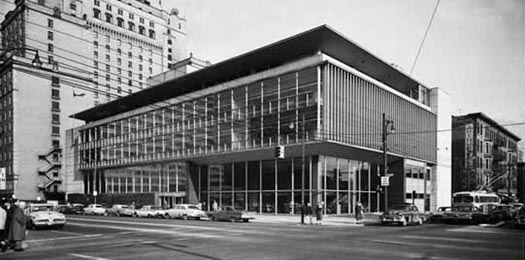
As I’ve written previously, from age 6 on, I pretty much raised myself — my father worked the afternoon shift til 1 a.m. at the post office, and my mother worked evenings at Canada Packers / Swift Meats on Lulu Island. After making myself some dinner, or eating some stew that was bubbling away in the slow cooker, I was left to my own devices. Sometimes that involved going to the movies, sometimes in the 1960s that meant rehearsing for a play at Templeton Secondary school, but mostly it meant spending evenings at the Vancouver Public Library, at Robson and Burrard (pictured above). In some measure, librarians helped to raise me.
The library opened up previously unimaginable possibilities about what the future held, not only introducing me to the great works of literature, but providing me with insight into history, politics, development, and the arts.
Amidst the many tens of thousands of books, there was a newspaper and magazine room, where I would spend the better part of an hour each evening, reading through Time magazine, the London Times, the New York Times, the Manchester Guardian, the Toronto Star, and in time, the “gang of activists” folks who began publishing This Magazine, Canadian Forum and Canadian Dimension. I read newspapers from across the globe, and consumed magazines as if I was starved for information about the beauty and breadth of the world around me. I carried on that tradition of magazine and world newspaper reading while attending school at Simon Fraser University in the 1970s, and carry on that tradition thru until this very day.
At present, I subscribe to the following newspapers, magazines and …

The Globe and Mail sets me back $29.36 each month, by far my most expensive subscription, I subscribe to the news channels through TELUS Optik TV. The annual subscription to the LA Times is $71.01 (or $5.92 a month), the Washington Post, $76.08 ($6.34 monthly), Slate Plus is $35.86 annually, while Vulture / New York magazine comes in at $27.36 for the year. The New York Times is $8.40 per month, and The Guardian is an even $5. The total monthly subscription to the news channels, and all the magazines above comes in at a whopping, easy-to-digest $67.28 a month.
Each morning when I arise to Stephen Quinn and The Early Edition, sometimes at 7 a.m., sometimes at 5 a.m., I immediately flip open the iPad Mini beside my bed, and click on the morning digest of news on my Flipboard app, a free and indispensable source of news.
Next, I surf through the New York and Los Angeles Times, then Slate, The Guardian, the Washington Post, and Vulture. Then, it’s up to make some breakfast while listening to the New York Times’ Michael Barbaro podcast, The Daily. Over breakfast I catch up on the news on CBC Network, the CTV News channel, CNN and MSNBC. After breakfast, it’s to my computer to continue with an hour of reading of the Globe, and the NY Times, the Washington Post and LA Times in depth, with a gander at Slate, and checking out Vulture / the New York magazine — and whatever I’ve found on Flipboard that I found interesting, in The Atlantic, Esquire, Vanity Fair, after which it’s off to Twitter and Facebook.
And then, after all that, I’m ready to begin my day.
Okay, okay, I can hear you say, “It’s alright for you to read and subscribe to so many news outlets, but not all of us have money to spend burning a hole in our pocket,” which will now lead to the following graph of my total income for 2019. I have an extra $75 in tax taken off, so I’ve got a bit of money, usually $900 in a tax return, each spring — thanks to my good friend (who knows how he puts up with me?) and accountant for nigh on 30 years, the spectacularly kind Patrick Mokrane, who’s kept me afloat financially thru his on the up-and-up derring do on my annual tax return.

A friend of mine tells me that he believes I live better on $1870.75 a month than anyone he knows. I have created an Excel spreadsheet that tracks every penny I spend, so that helps keeps me focused. My housing co-op monthly charge comes in at around $600, my bills (Internet, TV, mobility, home phone and Hydro, Netflix, Prime, etc.) comes in at around $245 — which leaves me with $67 for my subscriptions, $350 for food and household products, $75 a month on dining out or ordering in, another $75 a month for clothes and shoes — which, ordinarily, would leave me $400 each month left over to pay for dental, books, tech, insurance, hair cuts, donations to various causes (oh yes, I forgot, I donate $100 each month to the NDP provincially and federally, as well as to a faith organization, and various “causes”). Unfortunately, when in 2018 I came into a windfall arising from a 30-year-old union grievance I filed and won (for me, and hundreds of others locally), Canada Pension deducted that windfall from my annual income (economics - the dismal science), but in 2019 I had no such windfall, so in July Canada Pension cut my pension by $172.50 a month!
All of the above is by way of saying, if I can live relatively well on $1698 a month, or so, and can still prioritize subscriptions to various online news organizations, and donate monies to political parties I support, so can you.

As all of us are aware, it costs money to create content, and it costs a lot of money to fund good investigative journalism, as the nonprofit-run Mother Jones pointed out this year during a fundraising effort.
These past few years, we’ve also become aware of the controversy surrounding Mark Zuckerberg; the indifferent Facebook CEO claimed it was “crazy” that fake news on Facebook could have influenced the recent U.S. election results, or that his social media site has anything to do with aiding the repression of citizens across the globe. Sadly, that’s far from the truth.
Awhile back, Facebook eliminated the human editors who curated trending news; now an algorithm handles this — but the algorithm often gets it wrong, as stories from Russian bot sites present themselves as credible news organizations, make the rounds and trend on Facebook, feeding conspiracy theories and misinformation. Little wonder that, at last count, Facebook remains the world’s #1 purveyor of false or inaccurate news.
All of which is to say that you have an obligation to yourself, to those around you, and to society in general to keep yourself well-informed, and read credible news sites that are, in actuality, truly “fair and balanced.”
If you believe the newspapers and magazines above are a little too “conservative” for your liking, in Canada, there’s always rabble.ca, the public affairs journalism of richochet.ca, This Magazine, and Canadian Dimension, as well as down south, In These Times, Mother Jones, Crooks and Liars, and so many other left-of-centre journals and magazines that may be found online. There are places online where you can get credible, well-thought-out and researched, witty & engagingly written truthful news.
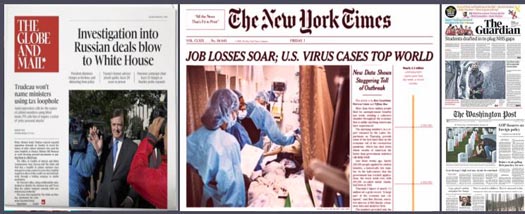
Do yourself a favour today: subscribe to one or more online, or home delivery, newspaper, journal or magazine. You’ll feel better for it. Honest.


